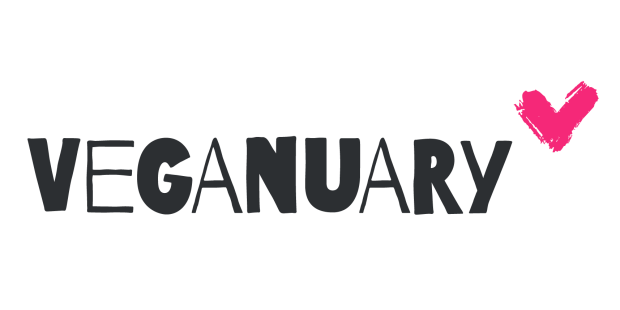
Are you thinking you might do Veganuary this year? You’re in good company…
Nearly 630,000 people signed up to Veganuary last year, not bad for an organisation set up only 8 years ago. It's an annual challenge run by a UK non-profit organisation that promotes and educates about veganism, for reasons of animal welfare, environmental concerns and for health. It has information, recipes, help and advice on its website to encourage people to follow a vegan lifestyle for the month of January, and beyond! As it says on its website (https://veganuary.com):
"Our vision is simple: we want a vegan world. A world without animal farms and slaughterhouses. A world where food production does not decimate forests, pollute rivers and oceans, exacerbate climate change, and drive wild animal populations to extinction."
I did Veganuary back in 2016, when I had been slowly and reluctantly moving closer to veganism for about 10 years. I found it very helpful in that although I was nearly there anyway, it was a much easier to make a commitment just for a month rather than forever. And then I was so happy to be finally vegan that I never looked back! It was easier than I expected (although I was lucky there – I was running my own wholefood shop so I was able to try all the new stuff.) I missed cheese for a while but that faded quite quickly. Things have changed so much – I remember back in 2016 I had to be very careful using the 'V' word in the shop because I had so many people running out of the shop, apologising in embarrassment as they sincerely thought they couldn’t come into a vegan shop if they weren't vegan! One of the really good things about vegan food is that you don't have to be vegan to eat it! And most people realise that now – my customers in 2022 are mostly people who are happily 'not quite' vegans, but eat a mostly vegan diet. That's fine by me. But I do offer a 10% discount to those who go that extra distance and sign up to be 100% plant eaters – let us know if you have Vegan Society or Viva! membership cards.
I became a vegan mainly for animal welfare and environmental reasons, which have become even more desperate every year since then. This blog is written from my own perspective, and I do feel passionate about the issues involved, but it does seem that most scientists are agreeing with me now, which is a nice change. There are 3 main issues:
1) Animal welfare – The factory farming of animals, particularly pigs, chickens and cows, is in my opinion ethically indefensible. Modern farming practices take no regard for the animal's right to any sort of life, and often makes every moment of their lives a misery. The acceptance of the killing of baby animals as just part of farming practice is grotesque. A lot of people are so far removed from the real world of farming that they don't realise that eating animal products rather than their flesh is no better, and is sometimes even worse – millions of male chicks are killed on the day they hatch, dairy cows are continually impregnated and their male calves are shot at birth, if they are not being raised for meat. These dreadful modern 'plagues' we are having now come from mistreatment of animals – Covid from 'wet markets' in China, SARS from the eating of bushmeat, bird flu from intensive indoor rearing of poultry, swine flu from intensive rearing of pigs in crowded and unhygienic conditions, mad cow disease from feeding beef cattle ground up sheep brains (whoever thought that was a good idea?) No wonder we unleash awful diseases on the world which affect humans too.
2) Sustainability – Eating less meat and dairy is right up there with reducing use of fossil fuels as one of the key things we can do to limit global warming. Modern farming of cows and sheep releases huge amounts of methane (one of the most powerful warming pollutants) and nitrates into the environment. It also takes up an inordinate amount of room – if more people adopted a vegan diet there would be enough room in this country to feed ourselves and still have land spare which could be rewilded to fight the catastrophic mass extinctions that are starting to happen. Eating an organic diet is even better – fewer pesticides and other toxic chemicals ending up in food and the environment.
3) Health – It is now accepted that veganism is good for health: it can lead to weight loss, a lowering in cholesterol, it can lower the risk of heart disease, type 2 diabetes and cancer. There is plenty of calcium and iron in veg, especially green leafy vegetables. Lentils are high in protein, fibre and vitamins. Plant milks are often fortified with vitamins, so are other foods such as Engevita nutritional yeast enhanced with B12, and seeds such as Chia and Flaxseed are high in omega 3 fatty acids. However you can always take a supplement if you think you need to.
(continued in part 2)
